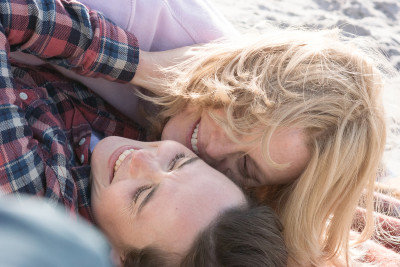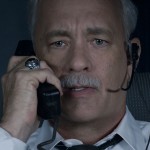
In a city as liberal as Boston and a school as accepting as Boston University, it is sometimes easy for non-LGBT students to forget the discrimination that the LGBT community faces and the rights for which they must fight.
What is more remarkable is how much America’s general attitude toward LGBT rights has changed even within the past decade. The Supreme Court ruled in favor of same-sex marriage earlier this year, but in 2005, terminal cancer patient Detective Laurel Hester was denied an appeal to grant her pension to her domestic partner by the Ocean County New Jersey freeholders.
“Freeheld,” directed by Peter Sollett, dramatizes Laurel’s (Julianne Moore) life from her first encounter with her partner Stacie Andree (Ellen Page) through her battle with cancer and the freeholders. The film itself is six years in the making because no one wanted to fund it — a scenario reminiscent of the political red tape in the movie.
Laurel explains her choice to hide her sexuality from her coworkers by pointing out how hard it is to succeed as a female detective, let alone a gay female. In many ways, this kind of discriminatory obstacle continues in the filmmaking world today. Though studios are beginning to produce more female-centric films, the number pales in comparison to the large majority of male-led films.
Even in LGBT movie subsets, women suffer. “Freeheld,” therefore, is a rare film and a “labor of love.”
Stacie uses this phrase to describe the house she and Laurel share, which, if Laurel’s pension is not granted, Stacie will not be able to keep. “Freeheld” is careful to show the importance of this house throughout the first act of the film, just as it makes sure to depict Laurel and Stacie’s relationship as both realistic and loving.
Laurel’s control issues give the couple a rocky start, but their chemistry is undeniable. Moore’s underplayed, no-nonsense lady cop is admirable, but Page truly shines as the spunky yet soft-spoken, “butch” Stacie.
Page has cited her role as Stacie as inspiration for her coming out earlier this year, and her devotion to the performance visibly pays off. The two continually repair and remodel their shared home, and they fall deeper and deeper in love.
In this first act, “Freeheld” creates intimacy so striking that it almost feels intrusive to watch. This is doubly effective when the gut-punch diagnosis hits, and even more so when, due to the personal beliefs of five Republican freeholders, their relationship is forced into the spotlight.
The film reminds us over and over again that these women did not appeal the freeholders because they wanted to be activists. Laurel refuses to adopt the moniker or even agree to fight for same-sex marriage. She says to the freeholders that throughout her entire career as a police officer, “I never asked for special treatment. I am asking for equality.”
When Laurel tells her police partner and dear friend Dane Wells (Michael Shannon) about her sexuality, he bitterly exclaims, “What, so you’re the oppressed minority now?”
In the battle for Stacie’s right to Laurel’s pension, Dane comes to realize that is exactly what Laurel is. Shannon is incredibly realistic here as a cynical Jersey cop one could run into at a coffee shop and as a straight white male with little appreciation for the tribulations that homosexuals face.
After his initial aversion to the situation, Dane ends up taking the lead in the couple’s appeal. He, like the audience, has come to know and love Laurel and Stacie as people, not as gay rights activists. The appeal is about justice and equality, not political beliefs. The couple wants the same treatment a heterosexual couple would have, and are being denied that justice.
The tragedy of Laurel’s cancer and the frustrating humiliation of the appeal make “Freeheld” hard to handle at times, and the flamboyant same-sex marriage activist played by Steve Carell is a one-note joke that overstays its welcome. His out-and-proud attitude doesn’t fit with the film, but it does highlight how simple and average Laurel and Stacie are as a couple. They are not trying to change policies, but merely live their short life together.
“Freeheld” is a testament to how far LGBT rights have come, but more so to the foundations for which these movements stand. At the most basic level, LGBT movements are about love. Love transcends political boundaries, and can connect everyone in a movie theater, too.
“Freeheld” is now playing in theaters nationwide.




